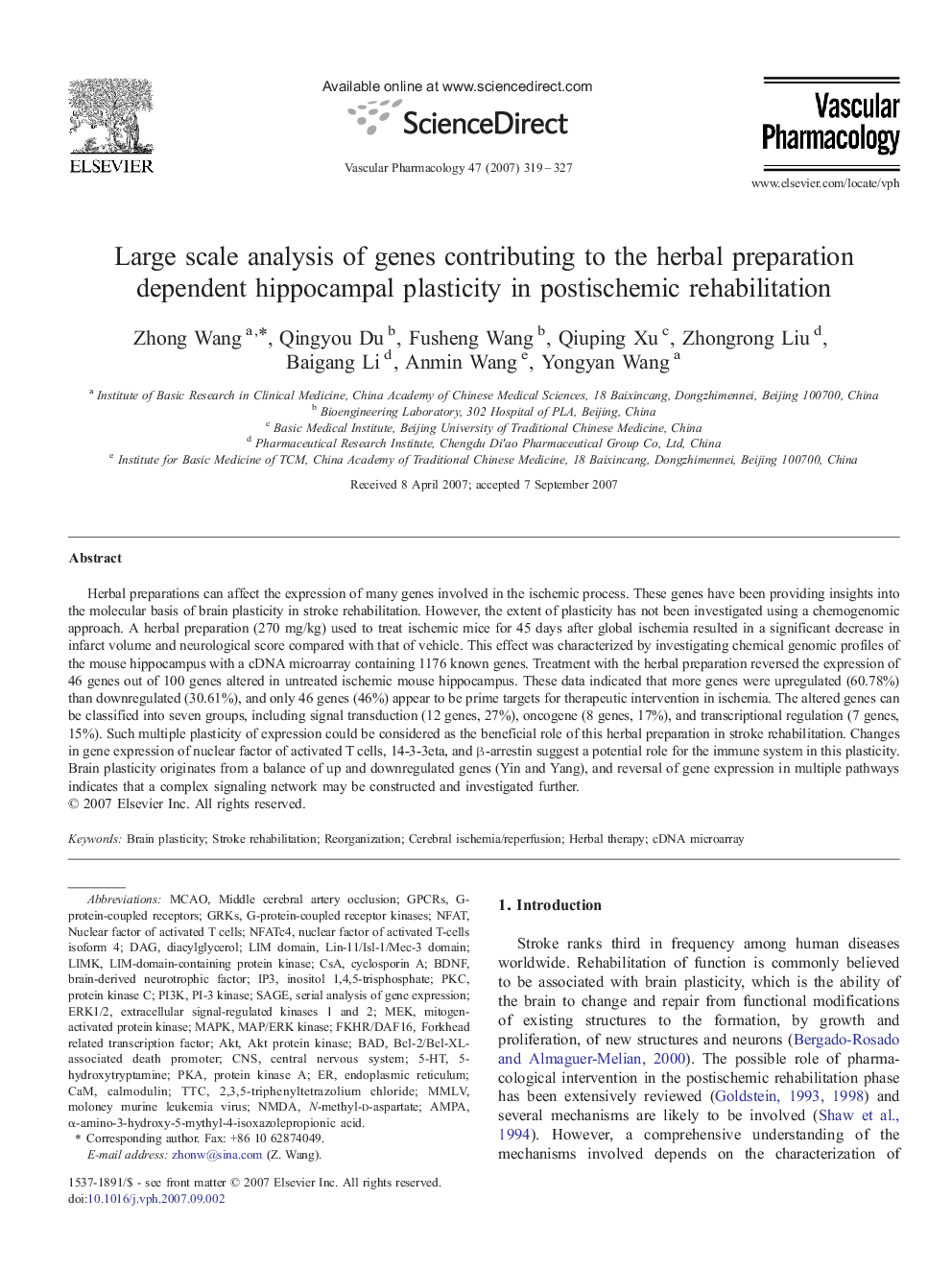| Article ID | Journal | Published Year | Pages | File Type |
|---|---|---|---|---|
| 2574869 | Vascular Pharmacology | 2007 | 9 Pages |
Herbal preparations can affect the expression of many genes involved in the ischemic process. These genes have been providing insights into the molecular basis of brain plasticity in stroke rehabilitation. However, the extent of plasticity has not been investigated using a chemogenomic approach. A herbal preparation (270 mg/kg) used to treat ischemic mice for 45 days after global ischemia resulted in a significant decrease in infarct volume and neurological score compared with that of vehicle. This effect was characterized by investigating chemical genomic profiles of the mouse hippocampus with a cDNA microarray containing 1176 known genes. Treatment with the herbal preparation reversed the expression of 46 genes out of 100 genes altered in untreated ischemic mouse hippocampus. These data indicated that more genes were upregulated (60.78%) than downregulated (30.61%), and only 46 genes (46%) appear to be prime targets for therapeutic intervention in ischemia. The altered genes can be classified into seven groups, including signal transduction (12 genes, 27%), oncogene (8 genes, 17%), and transcriptional regulation (7 genes, 15%). Such multiple plasticity of expression could be considered as the beneficial role of this herbal preparation in stroke rehabilitation. Changes in gene expression of nuclear factor of activated T cells, 14-3-3eta, and β-arrestin suggest a potential role for the immune system in this plasticity. Brain plasticity originates from a balance of up and downregulated genes (Yin and Yang), and reversal of gene expression in multiple pathways indicates that a complex signaling network may be constructed and investigated further.
